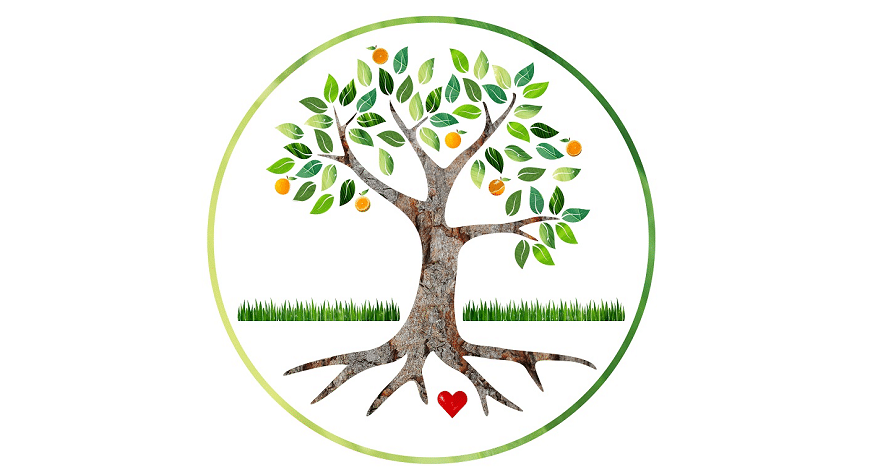The Seed: Central Desire
The following is adapted from Unit 1, Lesson 3, of our newest curriculum for men, Discovery: A Biblical Support Group Curriculum for Men Pursuing Sexual Integrity, which is available as a FREE digital download here beginning August 13, 2021.
Autonomy is literally self-rule. In the context of our relationship with God, it is broadly connected to our turning away from him, our rejection of him and all that he is. It is not just a desire to be free of his rule; it is a rejection of his care, a repudiation of his love, a condescension over his wisdom, and a mistrust of his plans and purposes. In a nutshell, it is turning away from all that God is and turning toward ourselves in order to be on our own.
This central heart-desire for autonomy, and the way it affects our ongoing experiences, is profoundly illustrated in the story in Genesis 3, though this is not just an illustration; it is the history of our fall into our current sin-filled existence. It also describes the personal sinfulness that shapes all of our lives. To truly see how this story is representative of our sin struggles, we need to have a biblical understanding of sin as being organically connected to the thoughts, feelings, and intentions of the heart. Our focus in this story is usually on the act of eating the forbidden fruit, so we don’t imagine sin having any existence until that final moment. It is true that the act of eating is “the sin” in its most mature form.
In Genesis 3:6, we see the woman perceiving the world around her with a heart that has already begun to turn away from God. She has begun to think of making life decisions independent of God. Again, this is autonomy because she interprets and evaluates the fruit on her own without the wisdom of God’s instructions. How does her ignoring of God’s perspective and instructions affect her perception of the fruit? Is any part of what she sees about the fruit only true if she removes God’s perspective and instructions from her sight? What should her perception have included if she had continued to heed and believe God’s words?
The idea is that the fruit would never have appeared “good for food” (good food doesn’t kill you) or “to be desired to make one wise” (it has made us all fools) if Eve’s heart was guided by a secure resting in God’s love and confidence in his instructions, even though the fruit may have had a certain objective “beauty.” Her heart desires and commitments shaped her interpretation of the reality in front of her!
However, an act is only the completion of what the heart has already committed to doing. As James 1:15 says, “Then desire when it has conceived gives birth to sin, and when it is fully grown brings forth death.” The childbirth imagery is helpful. We mark our age by the day we were born, but that day is only one stage of life, ending our time in the womb; more life is to follow. Similarly, sin begins with an initial stage, and more stages follow after the first one. Granted, in the first sin, Adam and Eve did not start with a hearts that were already corrupted, but, at some point, their hearts turned, the desire towards sin was conceived, and the sin that had been growing in their hearts was finally born as they sunk their teeth into the fruit. God gave us the whole story on their sin so that we would understand our own, not only as an action but also as a profound turning of our hearts away from him.
Before moving on, recall that the central desire of our fallen hearts is autonomy, imagining ourselves as independent of God and even in the place of God. In this lesson, you will seek to not only identify your fallen heart’s central desires but also to see how those desires continue to shape your perception and feelings about God, others, and yourself; to begin to see connections to your struggle with sexual sin and temptation; and to see your struggle with sexual sin on a deeper heart level and then begin to pray differently about your struggle.
The opposite of the central heart desire for autonomy is having hope in God, trusting in his purposes for us, growing confident in his Word and his character, being content with his gifts and timing, and receiving and trusting his love for us, just to name a few. The gospel working in your heart produces these things in you and helps you toward repentance from sexual sin. By seeing how your lack of trust, contentment, and lack of confidence in God’s love contributes to your sexual sin, you can begin to see how the opposite of these will …
Sample of Discussion Questions
- What things does the serpent say to the woman? How do you think the serpent is trying to get the woman to think and/or feel about God, about herself, and about the tree?
- Have you experienced any of these kinds of thoughts and feelings? Please describe.
- How do these thoughts encourage you to separate yourself from God? In other words, how do they tempt you towards autonomy?
- What are some of the actions and habits you see in your life that flow from the thoughts and feelings you listed in your response to question 2? How have these led you away from God?
